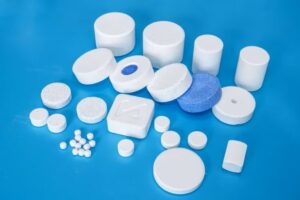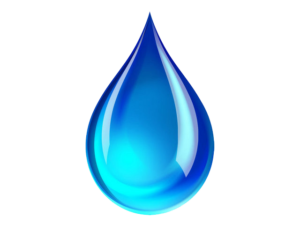In industrial production, the problem of water pollution has become increasingly prominent, so water treatment chemicals have become an important tool to solve industrial water pollution. However, among many water treatment chemicals, how to intelligently select chemicals suitable for different situations has become a key task in industrial water pollution control. This article will discuss how to choose appropriate water treatment chemicals in different situations to achieve efficient, economical and environmentally friendly treatment effects.
1. Suspended solids and particle removal
Industrial wastewater often contains suspended solids and particles, which affect water quality and treatment equipment. In this case, an appropriate flocculant, such as polyaluminum chloride (PAC) or polyaluminum sulfate (PFS), should be selected to promote rapid particle aggregation and sedimentation. The selection of a suitable flocculant depends on the nature, concentration and water treatment process of the suspended matter.
2. Organic matter degradation
The degradation of organic matter is an important part of industrial water pollution control. When dealing with refractory organics, consider using oxidizing agents such as hydrogen peroxide or ozone. Oxidants can decompose organic matter into smaller molecules through oxidation reactions, thereby achieving degradation and purification. When choosing an oxidizing agent, the structure and reaction conditions of the organic matter should be considered.
3. Heavy metal removal
Heavy metals are one of the common pollutants in industrial wastewater, which have serious impacts on the environment and ecology. pH adjusters and precipitants are common choices for heavy metal removal. The pH regulator can adjust the pH of wastewater and promote the formation of insoluble precipitates of heavy metals. At the same time, choosing a suitable precipitant also helps to remove heavy metals efficiently.
4. pH adjustment and neutralization
The pH of industrial wastewater has a major impact on the treatment process and the environment. Choosing the appropriate neutralizer and pH regulator, such as calcium hydroxide or sodium hydroxide, can effectively adjust the pH value of wastewater to make it close to neutral. This helps optimize the effects of other treatments while reducing environmental impact.
5. Antiscalant and anticorrosion agents
In industrial production, scales tend to accumulate inside pipes and equipment, which affects fluid transfer and heat transfer efficiency. Choosing an appropriate scale inhibitor, such as polyphosphate, can prevent and remove scale in the pipeline and maintain the normal operation of the equipment. In addition, anti-corrosion agents are also an important option to protect equipment from corrosion attack.
6. Microbial control agent
Some industrial effluents are prone to microbial growth, causing odors, corrosion and other problems. Selecting appropriate microbial control agents, such as disinfectants or biological enzymes, can effectively inhibit microbial reproduction and keep water clean.
The nature of the wastewater, the type of pollutants, the treatment process and environmental regulations need to be considered comprehensively when selecting the appropriate water treatment chemicals. Cooperating with professional water treatment chemical suppliers, customized solutions will be more conducive to achieving efficient, economical and environmentally friendly industrial water pollution control effects.
In conclusion, water treatment chemicals play an indispensable role in industrial water pollution control. By intelligently selecting suitable chemicals, industrial enterprises can effectively purify wastewater, realize clean and environmentally friendly production, and contribute to sustainable development. For more information about water treatment chemicals, please feel free to contact us atinfo@envochemical.com, we will provide you with professional consultation and support.





